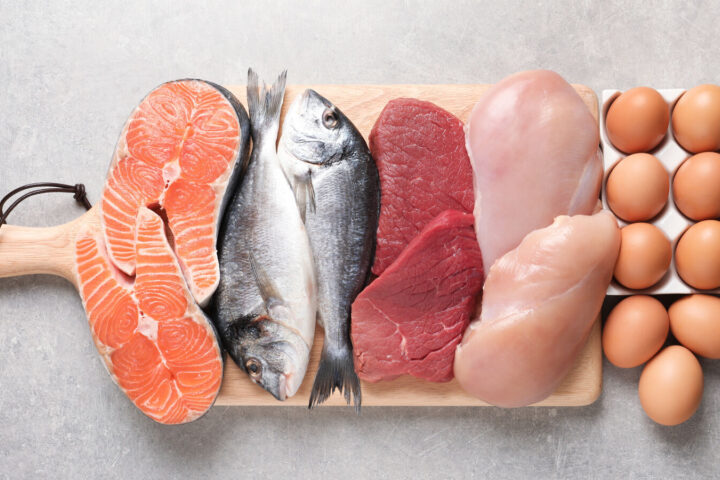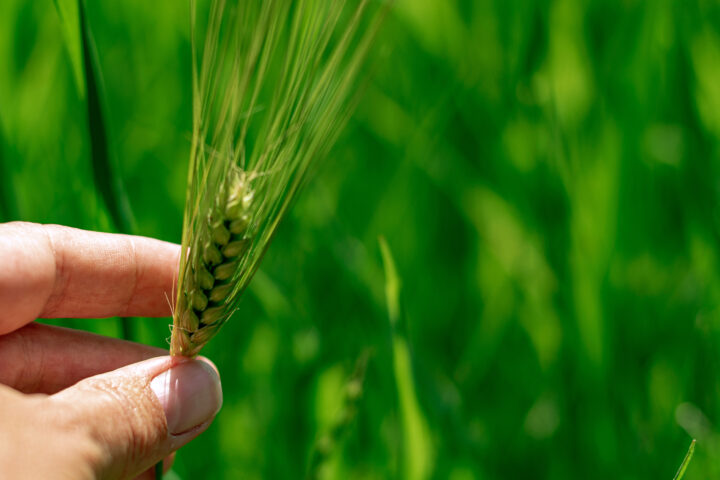
"Organic is not automatically healthier"
Can pesticides be found in urine if you only consume organic products? A journalist from CH-Media asked herself this question. She wanted to carry out a self-experiment to find out whether organic food is healthier. The results and the expert statements speak against it.
Thursday, December 21, 2023
Are organic products healthier? Journalist Anja Stampfli wanted to find out exactly. She reported in the CH-Media newspapers on a self-experiment with organic and conventional food. "One week is spent eating only conventionally grown food, one week only organic products. Several urine samples are collected," she summarises. The trial was supervised by Thomas Göen. Göen works as a laboratory manager at the Polyclinic for Occupational, Social and Environmental Medicine in Erlangen, Germany.
Even organic food is not completely free of pesticide residues. Even the Research Institute of Organic Agriculture (FiBL) in Frick knows this. In organic farming, the use of a considerable number of pesticides is permitted, such as spinosad, copper, azadirachtin and pyrethrin. This means that even organic products are not completely pesticide-free, as many people believe. This is also shown by a look at the FibL's list of excipients.
Plant protection products are used to protect agricultural yields from pests, fungi and weeds. And traces of the active ingredients can also enter the human intestine with food. But the journalist's self-experiment shows little concrete evidence. The contamination is low. "Only 3,5,6-trichloropyridiol and para-nitrophenol were minimally elevated in both weeks," says toxicologist Göen. According to him, these parameters are frequently detected even though the active ingredients are actually banned in the EU.
The journalist wanted to find out more and asked ETH toxicologist Georg Aichinger to categorise the results. According to Aichinger, the mere fact that traces of pesticides are found in urine does not mean much. And he quotes Paracelsus: "Only the quantity makes the poison." He adds that the limit and maximum values include a large safety margin. They are 100 to 1000 times lower than the exposure that can be dangerous for humans.
The conclusion is therefore: even if slightly fewer traces of pesticides are ingested via organic products, this does not mean that they are healthier. ETH toxicologist Aichinger summarises the findings according to the CH-Media newspaper report: "Even with conventional food, we are far from consuming problematic doses of pesticides." The German laboratory manager refers to the limits of a single self-experiment and points out that conventional Swiss products are also less and less contaminated with harmful substances.
Good to know:
The question of whether organic is healthier or not is a controversial one. What is clear is that a balanced diet with plenty of fruit and vegetables on a regular basis, combined with sufficient physical activity, offers the best conditions for good health.
The fakes are more certain when it comes to the question of whether organic is better for the climate and species conservation. For many organic consumers, concern for the environment is the main motive for their decision. However, the view that organic is good for the climate and promotes biodiversity is increasingly proving to be a fallacy. The greater land consumption of organic farming means that land with a high binding effect on greenhouse gases is no longer available. An English study concludes that greater land consumption has a worse effect on biodiversity than intensive farming on smaller areas. A study by the University of Göttingen also found that intensive production on smaller, well-connected areas is better for biodiversity than organic farming.
https://swiss-food.ch/en/artic...
Kindly note:
We, a non-native editorial team value clear and faultless communication. At times we have to prioritize speed over perfection, utilizing tools, that are still learning.
We are deepL sorry for any observed stylistic or spelling errors.
Related articles

Why Strict GMO Regulation Stifles Innovation
New breeding techniques such as CRISPR-Cas are considered key to developing resilient crops, stable yields and reducing the need for plant protection products. ETH professor Bruno Studer warns that overregulating these technologies strengthens precisely those large agricultural corporations that critics seek to curb, while excluding smaller breeders and start-ups from the market.

A Superfood with Benefits and Challenges
Sweet lupin is Biovision’s “Superfood of the Year 2026.” It delivers high protein content, improves soils and supports biodiversity. Yet a closer look at agricultural practice shows that without breeding, crop protection and innovation, even this superfood remains a challenging crop.

Sales bans due to PFAS: Should we be worried?
After spectacular sales bans on fish and meat due to PFAS contamination, consumers are asking themselves: How dangerous are these substances really – and what can still be placed in the shopping basket without concern?

How German Experts View New Breeding Techniques
In hardly any other country is the idyllic image of organic farming cultivated in the public sphere as carefully as in Germany. Naturalness and rural authenticity are powerful mental refuges for many Germans. Against this backdrop, it is hardly surprising that resistance to new breeding techniques is strong – and that ignorance about the realities of organic farming sometimes appears almost deliberate.

